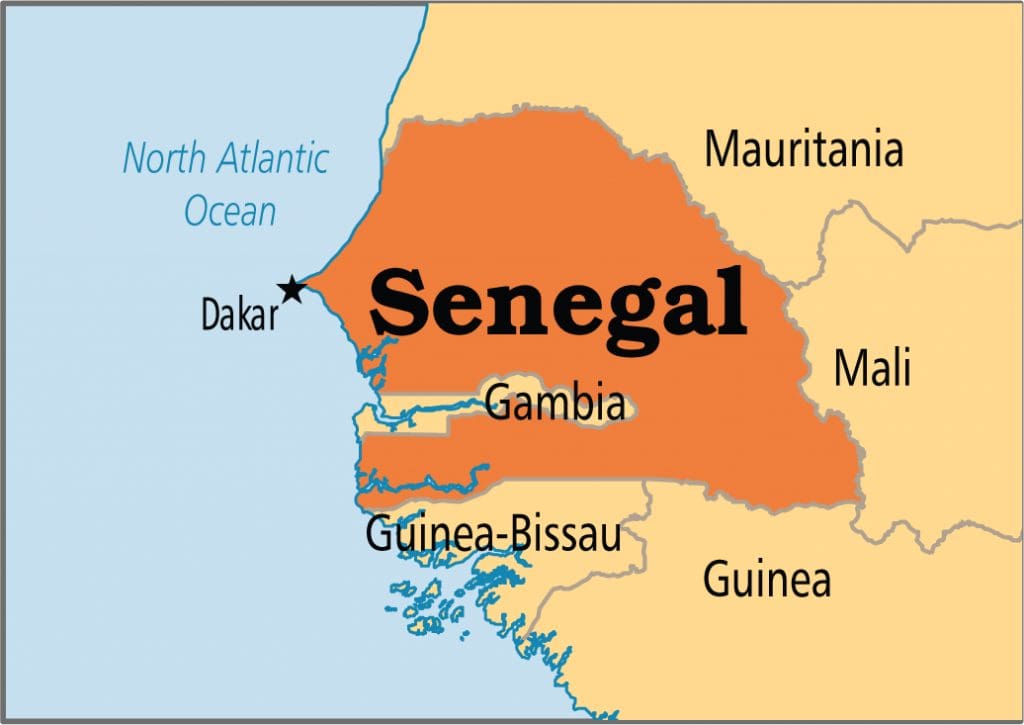Despite Senegal’s low number of coronavirus cases (342 total cases), community transmission is of concern to many in the country, which has an exceptional cure rate in Africa.
“Community cases are a source of concern,” said Professor Moussa Seydi, head of the infectious diseases department at the Fann Hospital and University Centre, Dakar.
Speaking to the newspaper Libération, Pr. Seydi called for “stricter measures to prevent the spread” of the virus.
Community transmission occurs when a person contracts Covid-19 from an unknown source and an epidemiological link cannot be established. In this case, there is a risk that the disease may spread within the community from one person to another.
This is what happened to a patient living in the Senegalese capital and currently undergoing treatment.
“I haven’t left the area of Medina and Gueule Tapée, but I can’t tell you where I got this disease,” he confided anonymously on the privately-owned Television Futurs Medias (TFM). Stoic at the announcement of his contamination, he said he feels “now very well” after being admitted last Sunday at the Fann hospital.
When he began to develop symptoms such as cough and fever, he thought for a while that he was suffering from a temporary flu, which he is used to, before resolving to go to a health centre and take certain “precautions” such as wearing a mask and gloves.
Propagation
“The disease is spreading. We have to be more preventive,” advised this patient who “never separates” from his mask and hydroalcoholic gel and respected the barrier gestures.
Yesterday, Thursday, the press release from the Ministry of Health and Social Action announced that 435 tests were performed: a record. As well as the 21 new cases of Covid-19 contamination recorded, including two community cases.
A month and a half after the outbreak of the disease in Senegal, 342 cases have been declared positive including 198 recoveries, a cure rate of 57.8 percent. The country lost only two patients and another evacuated to France who “finally died” according to an official source. A total of 141 patients, the majority of whom are in Dakar, are still under treatment.
This situation is causing several citizens to react, calling on the authorities to make the wearing of masks compulsory and also calling on them to screen the population on a massive scale.
But the latter are still sticking to their strategy of identifying, testing and isolating people who develop symptoms of the disease. “If we wanted to test everyone in Dakar, we would have to test about 3.5 million people. We don’t have the capacity to do that,” Amadou Alpha Sall, administrator of the Pasteur Institute of Dakar suggested earlier this month.
Widespread use of masks
The Pasteur Institute in Dakar together with the Institutes of Health Research, Epidemiological Surveillance (IRESSEF) in Diamniadio (on the outskirts of Dakar), will produce rapid tests with screening kits from June, as part of a collaboration between the United Kingdom and Senegal. “When the prototype is robust enough, we will produce it here to make it accessible in Africa,” the Pasteur Institute administrator said in the French newspaper Le Monde.
But until then, Professor Seydi remains convinced that “partial lockdown could be effective (although) the simplest solution would be a widespread use of masks.
Worldwide, there are more than two million cases of the new coronavirus with 147,000 fatalities. In Africa, the disease affects more than 18,000 people and the death toll is likely to exceed 1,000 in the next few hours.
The Secretary General of the United Nations (UN), Antonio Guterres, said last Wednesday that only “a safe and effective vaccine” could put an end to this unprecedented health crisis.
ODL/id/te/lb/abj/APA


